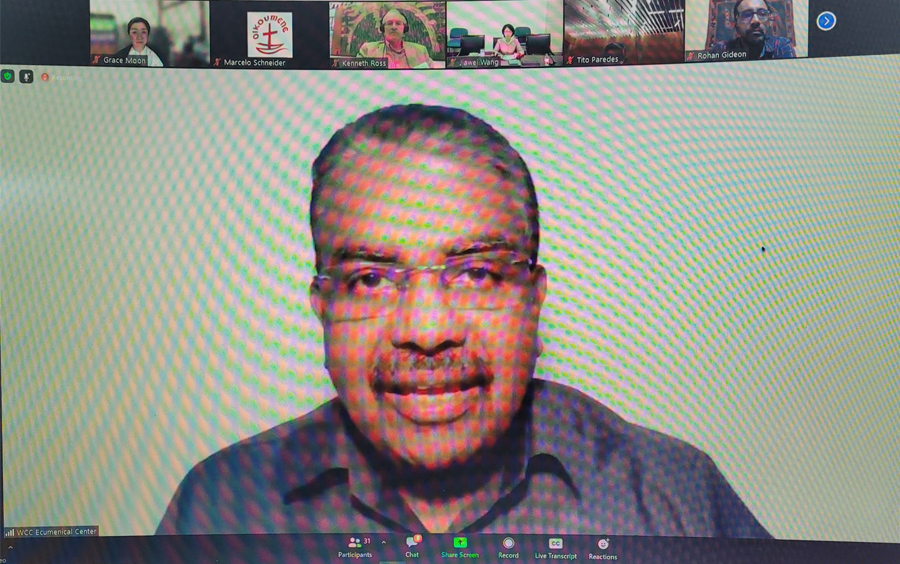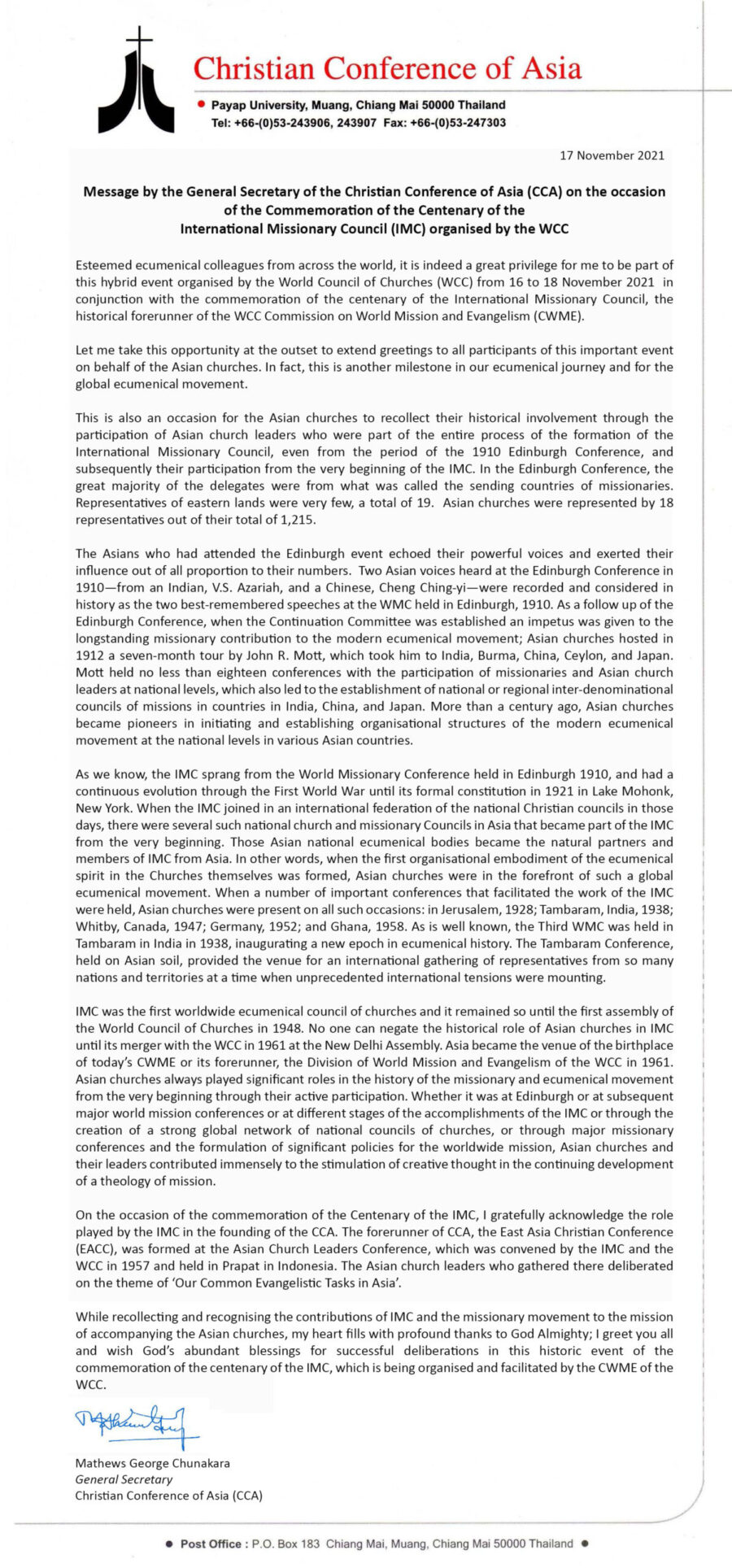CCA extends greetings on the occasion of the commemoration of the centenary of the International Missionary Council
 A commemorative event in conjunction with the centenary of the International Missionary Council (IMC), which was founded in 1921, is being organised by the Commission on World Mission and Evangelism (CWME) of the World Council of Churches (WCC), from 16 to 18 November 2021.
A commemorative event in conjunction with the centenary of the International Missionary Council (IMC), which was founded in 1921, is being organised by the Commission on World Mission and Evangelism (CWME) of the World Council of Churches (WCC), from 16 to 18 November 2021.
The International Missionary Council is the historical forerunner of the WCC’s Commission on World Mission and Evangelism.
Addressing the participants on the second day of the online event on the occasion of the WCC’s commemoration of the centenary of the IMC, the Christian Conference of Asia (CCA) General Secretary, Dr Mathews George Chunakara, recollected the historical involvement of the Asian churches from the period of the World Mission Conference–1910, and throughout the period of the entire process of the formation of the IMC in 1921.
“This is also an occasion for the Asian churches to recollect their historical involvement through the participation of Asian church leaders who were part of the entire process of the formation of the International Missionary Council from the very beginning of the IMC,” noted the CCA General Secretary.
“When the IMC joined the international federation of the National Christian Councils in those days, there were several such national church and missionary councils in Asia that became part of the IMC from the very beginning. Those Asian national ecumenical bodies became the natural partners and members of IMC from Asia. In other words, when the first organisational embodiment of the ecumenical spirit in the Churches themselves was formed, Asian churches were in the forefront of such a global ecumenical movement,” added the CCA General Secretary in his message.
Linking the historical connection between CCA’s forerunner EACC and the IMC, Dr Mathews George Chunakara further acknowledged and elaborated upon the strong connections that existed between two bodies: “On the occasion of the commemoration of the centenary of the IMC, I gratefully acknowledge the role played by the IMC in the founding of the CCA. The forerunner of CCA, the East Asia Christian Conference (EACC), was formed at the Asian Church Leaders’ Conference, which was convened by the IMC and the WCC in 1957 and held in Prapat in Indonesia.”
The IMC was merged with the World Council of Churches at the 1961 New Delhi Assembly of WCC, and the Commission on World Mission and Evangelism was then formed as a special unit. It is currently headed by Finnish theologian and missiologist, The Rev. Dr Risto Jukko.
The full text of the CCA General Secretary’s Address can be found below:











